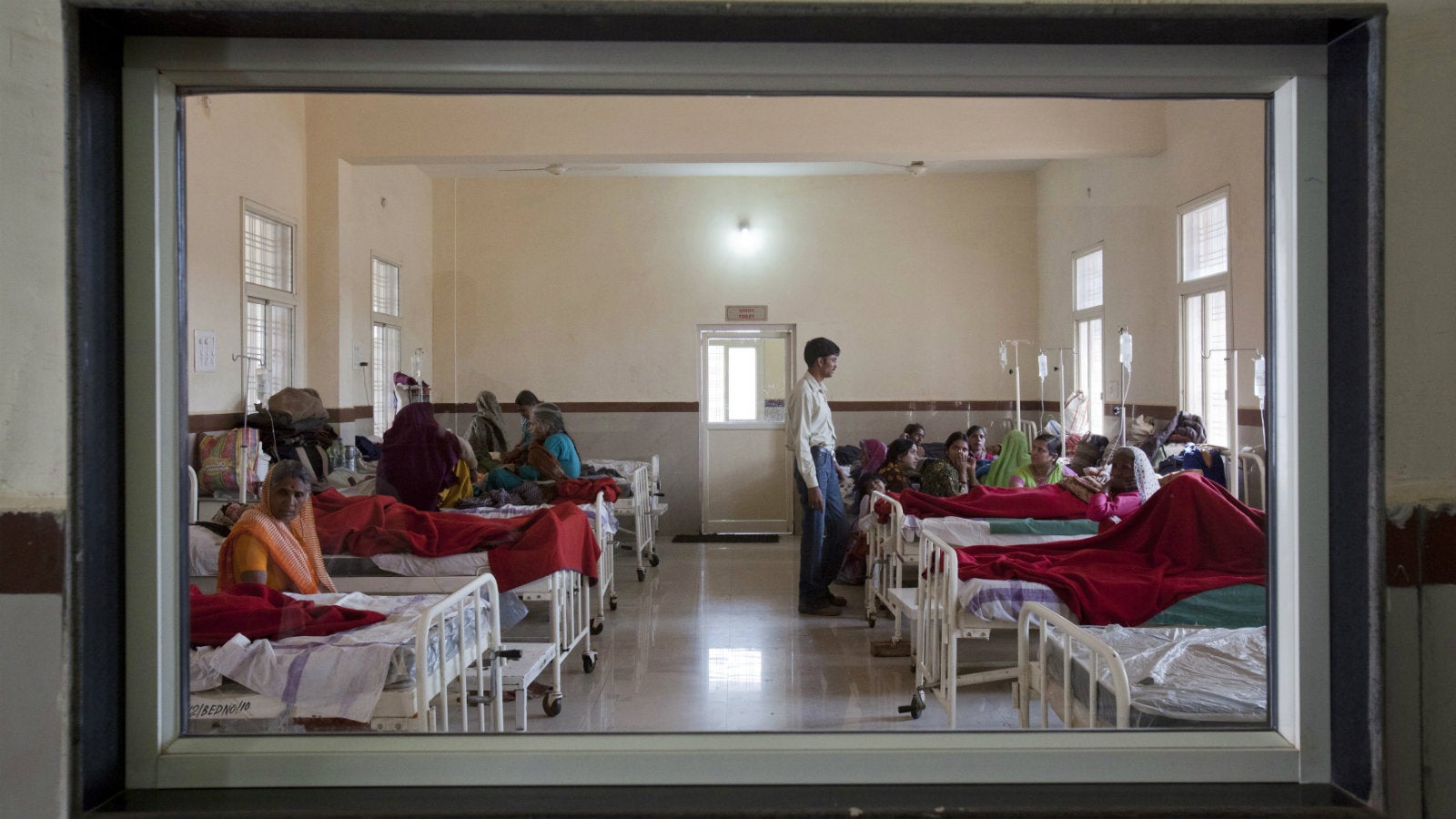India says it will fund the world’s largest national health programme
The Narendra Modi government has rolled out ambitious plans to improve access to health care in India.


The Narendra Modi government has rolled out ambitious plans to improve access to health care in India.
Presenting his budget speech on Feb. 01, finance minister Arun Jaitley said the government would implement a national health protection scheme targeted at 100 million poor and vulnerable families. It will offer reimbursements of up to Rs5 lakh ($7,845) per family per year for secondary and tertiary care hospitalisation for up to 500 million beneficiaries. This accounts for nearly 40% of India’s population, making it what Jaitley called the world’s largest government-funded health programme.
As part of this Ayushman Bharat programme, the government will also launch 150,000 health and wellness centres to make comprehensive medical care more easily available to households, with free essential drugs and diagnostic services. Overall, the budget has allocated Rs1,200 crore for the programme, Jaitley said.
For years, India’s public spending on health care has been dismal, accounting for just 1.13% of the GDP in 2014-15, according to the National Health Accounts Estimates report (pdf), released in October 2017. That’s far below what countries such as China and the US spend, and even less than the global average.
While countries like France heavily subsidise health care for the poor, India’s existing Rashtriya Swasthya Bima Yojana scheme, implemented in 2008, only offers low-income Indians hospitalisation coverage of up to Rs30,000 per year.
This simply isn’t enough in a country where such expenses have been shooting up over the years.
As a result, many Indians have been forced to rely on their own funds: Out-of-pocket expenditure accounts for nearly 63% (pdf) of the country’s total health expenditure, and both urban and rural patients have struggled to pay for the care they deserve.
“We are all aware that lakhs of families in our country have to borrow or sell assets to receive indoor treatment in hospitals,” Jaitley said in his speech. “(The) government is seriously concerned about the impoverishment of the poor and vulnerable families.”
But while the new scheme is a step forward, health experts say it’s not likely to fix things immediately.
“The numbers don’t add up, it’s more aspirational,” said Shaktivel Selvaraj, director and additional professor, health economics, financing, and policy, at the Public Health Foundation of India. “It can’t happen next year with the Rs2,000 crore allocation” He noted that the government’s overall outlay for health care inched up by just around 2% year-on-year, which was way below expectations. Without more money, it’s unlikely that the ambitious scheme will work out in the coming year.
Meanwhile, Jaitley didn’t clarify whether the scheme would apply to services at public or private hospitals, but said it signals that the government is ”steadily but surely” progressing towards universal health coverage.